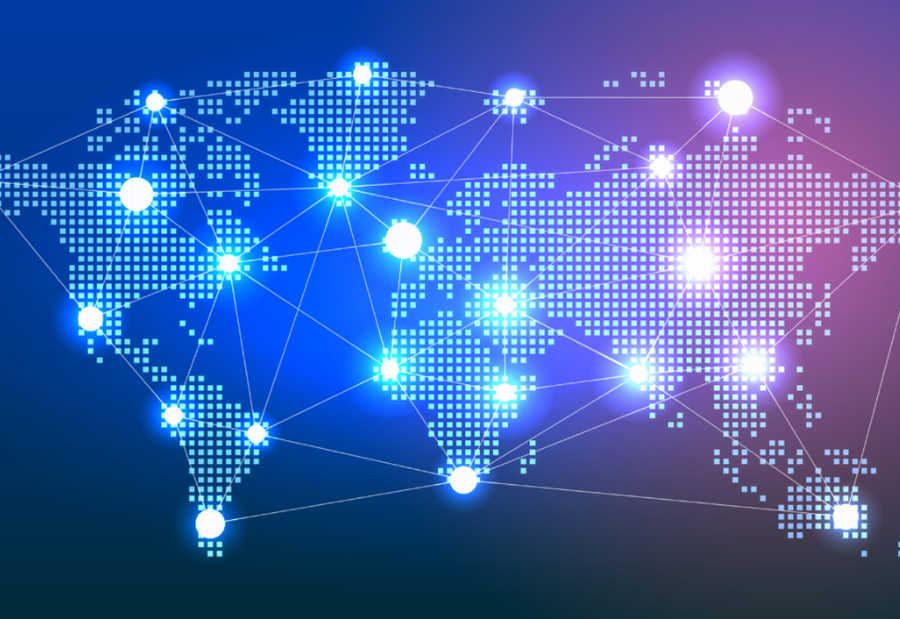Attendance at NASSCOM’s premier event, the Technology Leadership Forum (NTLF) 2025, was considerably higher than in previous years. It was beneficial to return to the Grand Hyatt Mumbai, a familiar location. We were able to hold more than 50 client meetings covering a broad variety of subjects influencing the IT and IT-enabled services sector since the small space was perfect for high-impact engagements. Not unexpectedly, the majority of the talks were with service providers, which included both international and Indian firms, from specialized experts to full-spectrum firms. These conversations produced a number of distinct themes that shed light on the sector’s changing objectives.
AI’s Impact On Service Delivery Is Just Beginning
It was impossible to avoid discussing artificial intelligence (AI), particularly generative AI (genAI). IT and business services of all types are among the knowledge industries that would be greatly impacted. There was a wide range of opinions expressed at the NTLF 2025 talks on how agentic AI will change the sector. In order to reduce personnel requirements and change conventional managed service models, IT services companies are assessing how automation and self-directed AI agents may speed up software delivery. The idea of a “digital workforce” is being reimagined by business process outsourcers (BPOs), who see AI-driven agents replacing regular, organized processes and reorienting the emphasis from scale-driven efficiency to expertise-driven value. Because agentic AI has the potential to upend established software categories, product makers are also reconsidering their roadmaps.
Despite the hype, many discussions were dominated by harsh realities. It was hard to overlook issues like job displacement, regulatory gray areas, and the morality of AI-driven decision-making. Vendors concurred that although AI may increase productivity and reduce costs, it also necessitates a reexamination of conventional value levers, workforce presumptions, and legacy business models. The attitude of the industry was reflected in NTLF 2025: optimistic about the potential of AI and agentic systems, but realistic about the challenges of practical implementation.
BPOs Gear Up For AI, But Real Impact Is Still On The Horizon
Both clients and service providers generally agree that a significant interruption of services and work styles is unavoidable. However, the impact is still more prospective than actual for the majority of BPOs. Almost all of the providers have made significant investments in two areas: 1) developing a portfolio of BPO services that prioritize AI, and 2) training their employees to work productively with AI. But play as it exists now is still in its infancy. The majority of AI deployments are restricted to agentic and foundational genAI use cases, which are mostly found in back-office transaction processing and customer support. Though it’s still early in the game, the transformative potential is evident.
BPOs that are pursuing a really strategic approach to AI-powered solutions are moving beyond generic options. In addition to creating agentic processes that cover whole service lifecycles, they are investing in scalable and fungible AI models that are domain- and vertical-specific. The focus on human-in-the-loop systems is a recurring theme in these initiatives, and it is forcing the BPO workforce to reevaluate job definitions, roles, and competencies. For the time being, fully autonomous, end-to-end processes are still more ideal than practical. In order to achieve that future, a fundamental change in perspective will be necessary in addition to new instruments.
GCCs Take Center Stage
Global corporations are becoming more interested in establishing their global capability centers (GCCs) in India. A noteworthy trend can be seen in NASSCOM’s forecast that the number of GCC countries would increase from over 1,700 to over 2,100 by 2030. We anticipate that throughout this time, there will be an average growth in the number of GCCs and the personnel they deploy. Service providers were eager to talk about how this expansion might affect their operations.
Previously dispersed across business divisions, several suppliers are now combining their GCC products into a single, cohesive service line. They are establishing new alliances in fields that are often outside their purview, such real estate, tax, legal, audit, and compliance, in order to provide end-to-end value. The service models cover the whole range, from standard outsourcing agreements for established centers to build-operate-transfer for greenfield GCCs.
The Four Forces Reshaping Tech Services In 2025 And Beyond
Service providers were cautiously optimistic going into 2025. However, behind the surface, worries about currency volatility, geopolitics, and the dual effects of AI—both accretive and possibly dilutive—were paramount. Four key factors, in our opinion, will influence the services sector’s course this year. Although GenAI will be in the forefront, it won’t be by itself. In order to facilitate that change, providers will need to assist customers in scaling and consolidating their core tech stack, forming the appropriate ecosystem relationships and alliances, and navigating a new, nonlinear connection between revenue and talent, which challenges long-held operational assumptions.
Also read: Viksit Workforce for a Viksit Bharat
Do Follow: The Mainstream formerly known as CIO News LinkedIn Account | The Mainstream formerly known as CIO News Facebook | The Mainstream formerly known as CIO News Youtube | The Mainstream formerly known as CIO News Twitter
About us:
The Mainstream formerly known as CIO News is a premier platform dedicated to delivering latest news, updates, and insights from the tech industry. With its strong foundation of intellectual property and thought leadership, the platform is well-positioned to stay ahead of the curve and lead conversations about how technology shapes our world. From its early days as CIO News to its rebranding as The Mainstream on November 28, 2024, it has been expanding its global reach, targeting key markets in the Middle East & Africa, ASEAN, the USA, and the UK. The Mainstream is a vision to put technology at the center of every conversation, inspiring professionals and organizations to embrace the future of tech.




